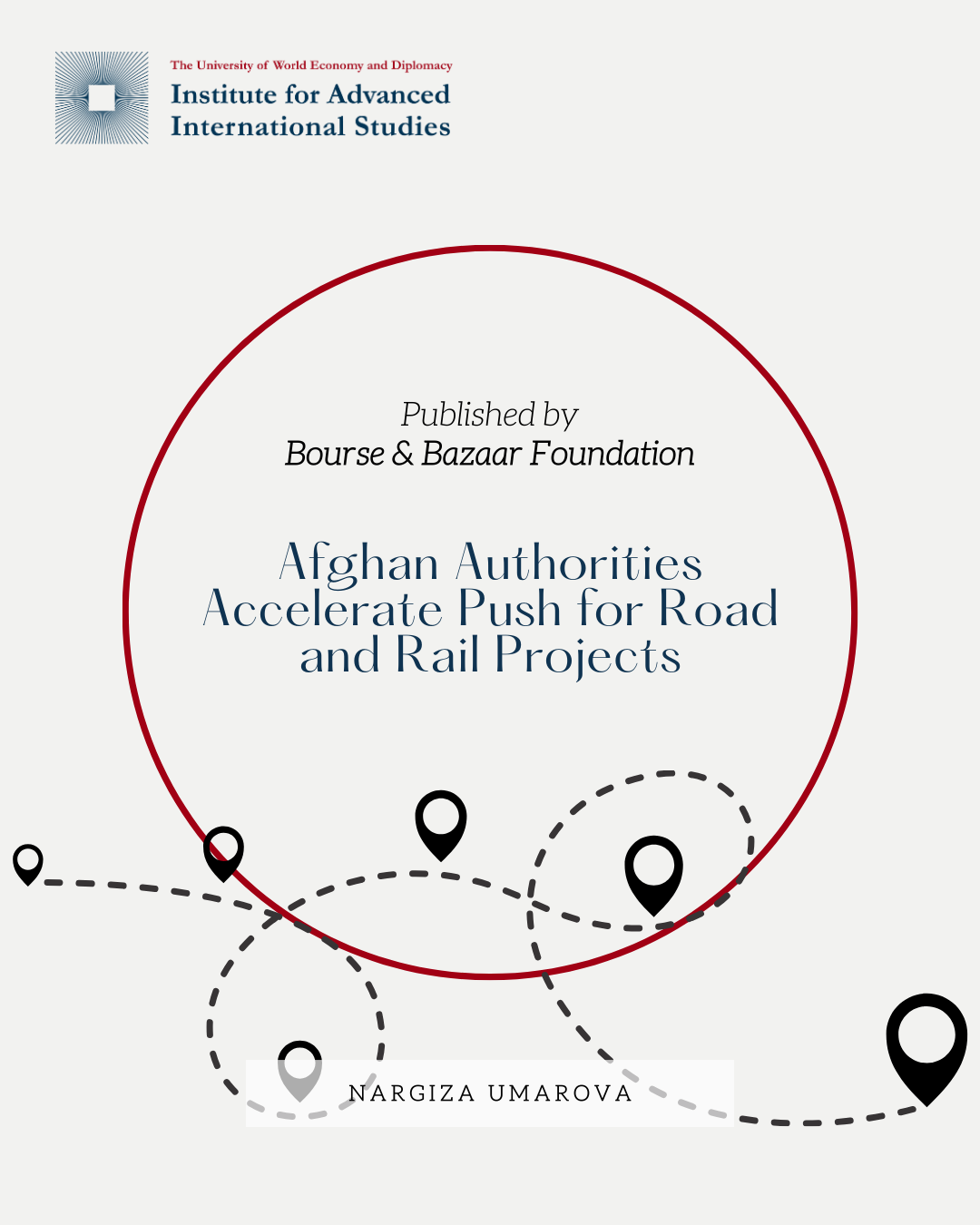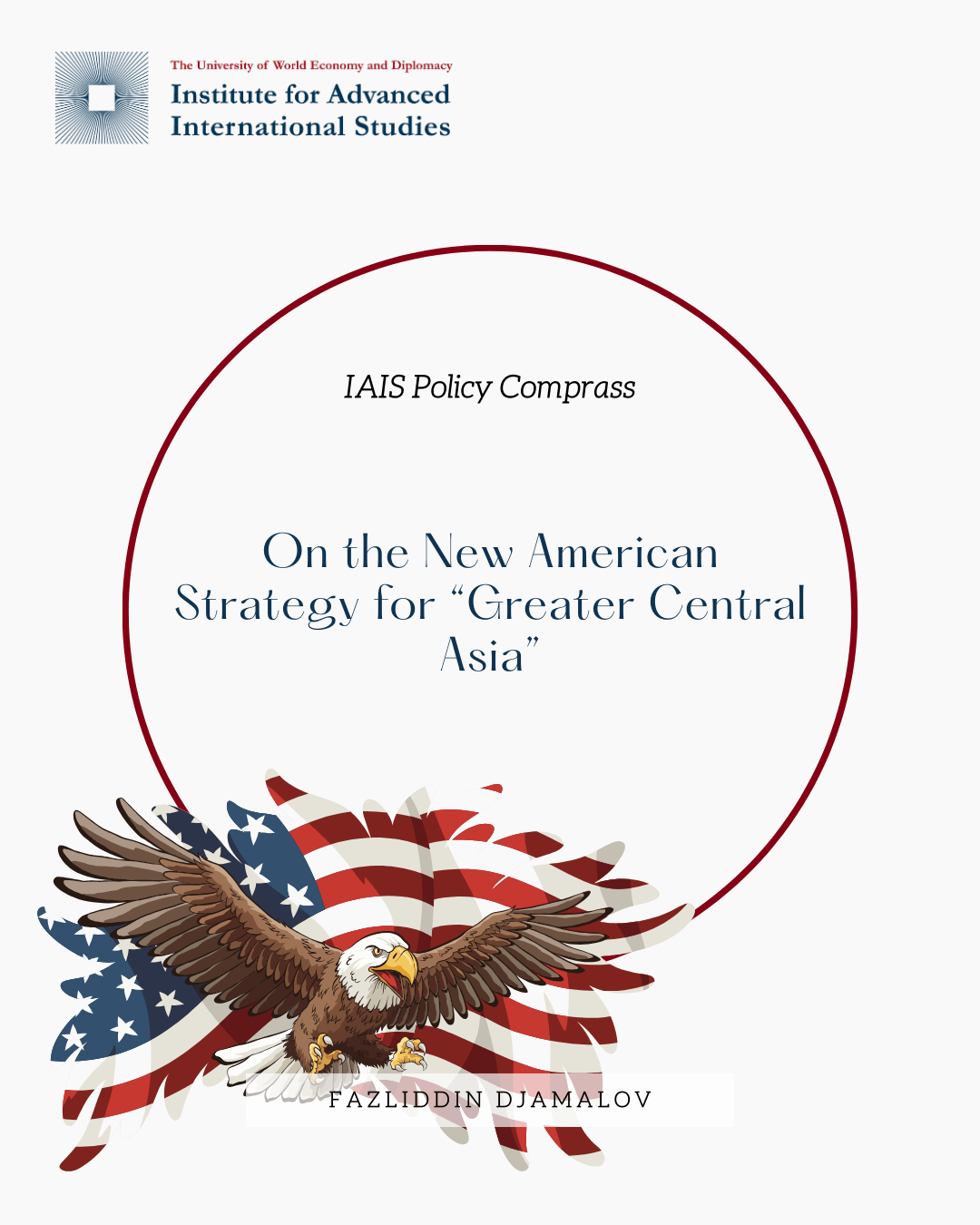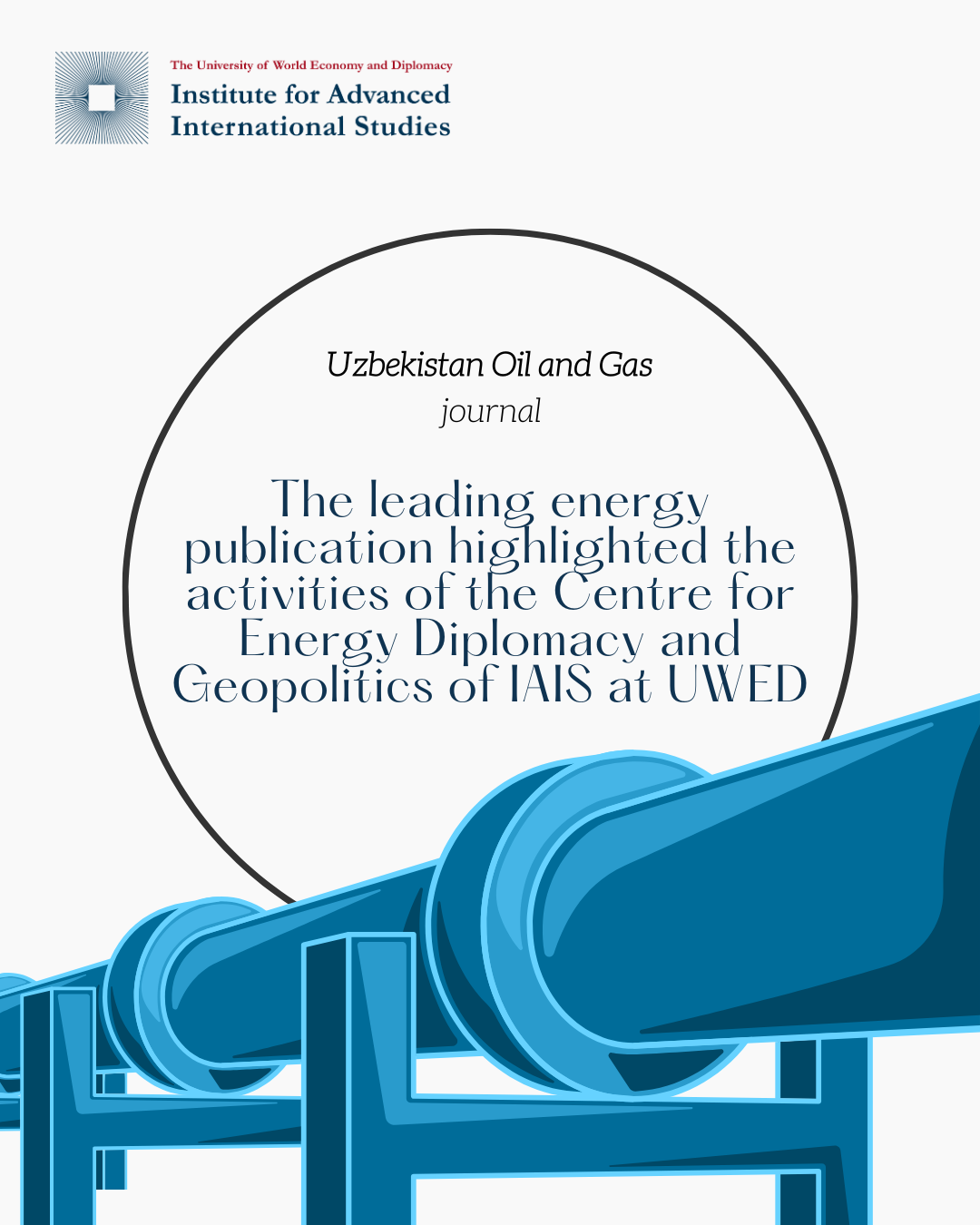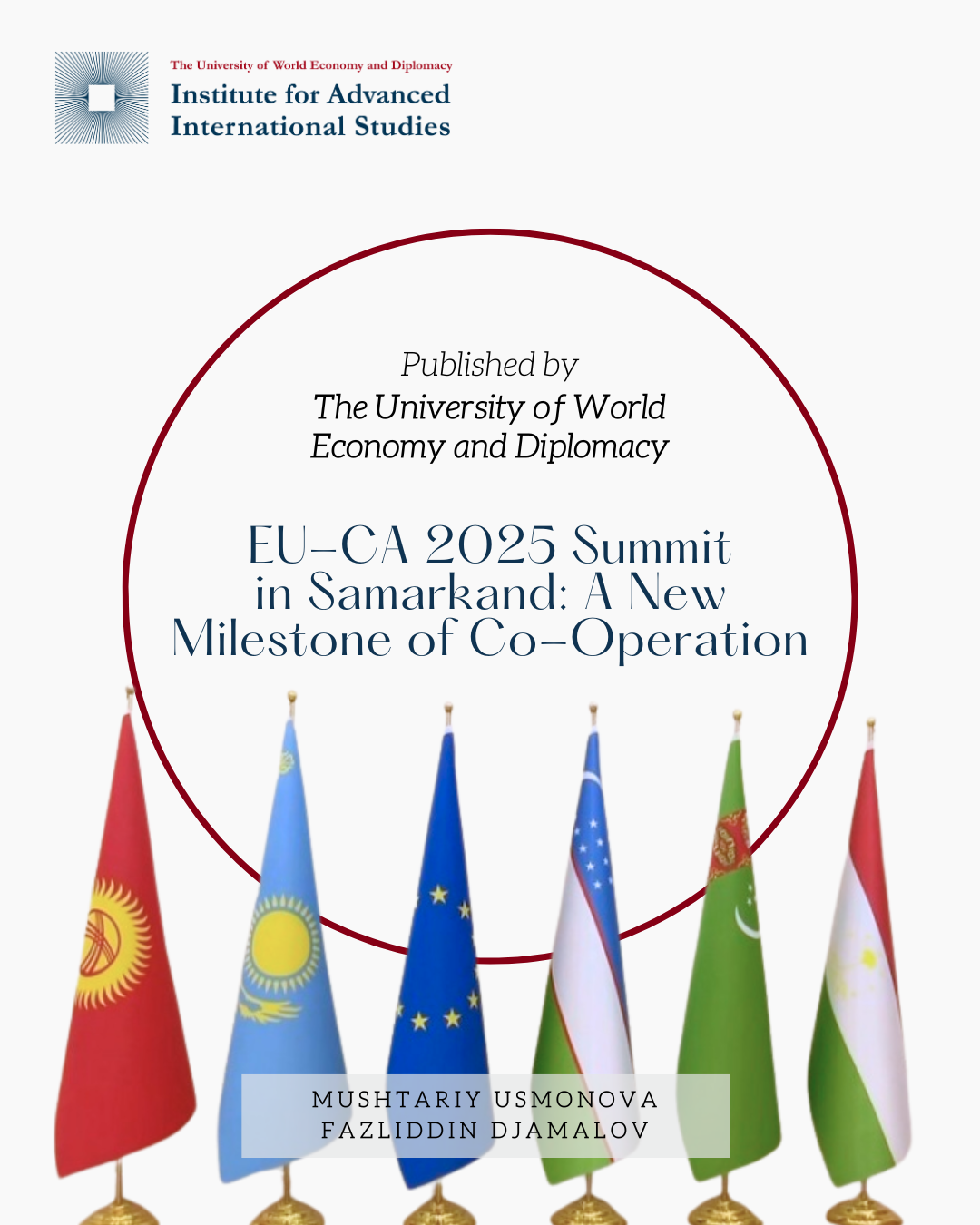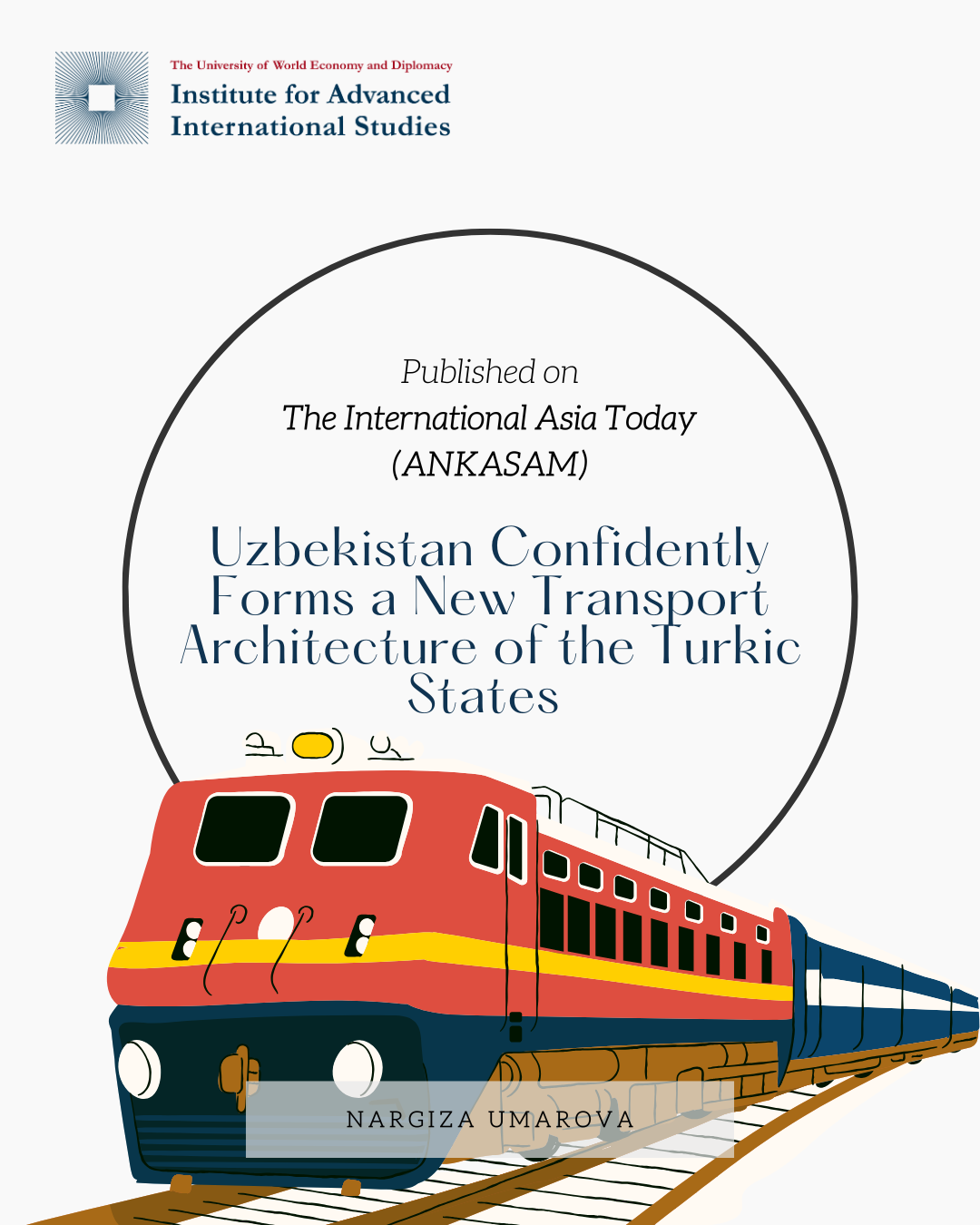In April 2025, the American Foreign Policy Council and its affiliated Central Asia–Caucasus Institute produced a report entitled The American Strategy for Greater Central Asia. This document, drafted by a group of distinguished experts with long-standing experience in the region, including such well-known scholars as S. F. Starr, A. Cohen, and S. Cornell, seeks to formulate a comprehensive and updated approach by Washington toward the vast expanse of Central Eurasia.
The principal aim of the strategy is to consolidate the competitive standing of the United States in a region that, in the view of the authors, will significantly influence the trajectory of Russian-Chinese relations, the broader geopolitical contest in Asia, and key commodity markets, particularly uranium, oil, and natural gas, while simultaneously ensuring open access and mitigating potential security risks.
The central conceptual innovation of the report lies in the redefinition of the very geographical scope of U.S. regional policy, expressed through the rebranding of the term “Greater Central Asia,” originally introduced in the early 2000s.
The concept now envisions a substantial expansion of the conventional American (and historically Soviet) understanding of Central Asia, traditionally limited to the five republics, by mandating the inclusion of Azerbaijan into this core. This reconfiguration is reflected in the proposed transformation of the dialogue format into a “C6+1” platform. Moreover, the strategy underscores the importance of viewing adjacent states such as Georgia, Armenia, and Mongolia as integral flanks that provide “existential support” through transport hubs, seaports, and shared economic interests.
A particularly important role is assigned to Afghanistan. While initially positioned as a peripheral element, it is envisaged as a state with the potential to be gradually integrated into the “organic whole” of the region. This marks an effort to shift the American approach toward Afghanistan from one primarily problem-oriented to one geopolitically integrated. In this way, the report attempts a conceptual redrawing of the regional space within the American strategic imagination, with the aim of constructing a new geopolitical and geoeconomic community deemed more attuned to contemporary realities and U.S. interests.
According to the document, the American strategy for Greater Central Asia is designed to address four principal tasks reflecting Washington’s key concerns.
First, it seeks to manage risks associated with Iran’s potential acquisition of nuclear weapons in a region already surrounded by nuclear powers (Russia, China, India, Pakistan) and states with nuclear capability (Türkiye), thereby raising the stakes of any conflict.
Second, the strategy declares a pragmatic interest in facilitating opportunities for American investment and private-sector profit, particularly in developing critical transport corridors including the so-called “Middle Corridor”, and in securing access to the region’s abundant natural resources, such as uranium, rare earths, lithium, and other strategic materials, especially in Kazakhstan and Uzbekistan. Notably, the strategy emphasizes not only the acquisition of preferential access for the United States and its allies but also the ability to restrict access for its competitors, foremost China.
Third, it maintains a strong focus on countering Islamic terrorism, both of local origin and externally infiltrated (via Afghanistan, Iran, and Pakistan), necessitating aggressive monitoring and close cooperation with regional governments.
Fourth, the strategy is explicitly tied to the global reorientation of U.S. foreign policy towards the containment of China, identified as Washington’s principal geopolitical rival. Greater Central Asia is positioned as a critical node in this rivalry, traversed by China’s routes to Europe and the Middle East and strategically interlinking Chinese, Russian, and Iranian agendas, rendering the region a vital arena for U.S. influence and shaping through effective engagement.
To achieve these objectives, the authors propose a set of concrete policy measures and instruments grouped across several domains. In the bureaucratic-administrative sphere, the report recommends appointing a Special Presidential Envoy for Greater Central Asia within the National Security Council to coordinate the activities of U.S. agencies and embassies, as well as eliminating internal obstacles to implementing a unified regional approach – potentially through institutional reorganization within the State Department and other structures.
Economically, the creation of a non-governmental U.S.–Greater Central Asia Business Council is suggested to promote the harmonization of visa regimes, the simplification of border procedures, the development of communications, and the standardization of trade, while simultaneously advancing U.S. private-sector interests in the management of trade corridors and investment.
In the security domain, the report advocates for the establishment of a Regional Security Structure for Greater Central Asia, focused on intelligence sharing, counter-terrorism cooperation, and joint initiatives, drawing on existing American training institutions for military and security specialists, such as the George C. Marshall Center, to foster a shared understanding of threats and approaches.
Considerable attention is also given to instruments of “soft power”: the accelerated engagement of emerging elites through educational and professional programs in the United States and within the region; support for regional media outlets (in both English and local languages) to disseminate Washington’s positions more effectively; and the promotion of English-language learning. Finally, the strategy underscores the necessity of consultations and coordination with like-minded partners, including Europe, Japan, Turkey, South Korea, and India to leverage overlapping interests.
A distinctive feature of the proposed strategy is its pronounced pragmatism and departure from earlier approaches, criticized by the authors as fragmented and insufficiently integrated into the global U.S. agenda. Acknowledging the objective limitations of American capabilities, such as the inability to rival Chinese investments under the Belt and Road Initiative or to provide hard security guarantees akin to NATO membership, the strategy places emphasis on more flexible and frequently indirect methods of influence.
Equally significant is the stated intent to work in partnership with the governments of regional states, viewing them as principal agents of implementation rather than mere objects of influence. Indicative, too, is the declared departure from demanding democratization and human rights compliance as preconditions for cooperation. Instead, the priority is accorded to stability, economic prosperity, and openness to the outside world, premised on the assumption that political freedoms may follow in due course as a by-product of economic development.
Furthermore, the strategy highlights the encouragement of regionally exclusive institutions to be established by the states of Greater Central Asia themselves, drawing parallels with ASEAN or the Nordic Council, as mechanisms to strengthen their collective agency and resilience to external domination. The United States is assigned the role of partner rather than participant in such frameworks.
In sum, the report articulates a renewed and more geopolitically focused concept of American policy toward the broadly defined Greater Central Asia. This vision clearly positions the region as one of the principal arenas of strategic competition between the United States and China, and implicitly with Russia. The shift away from prioritizing immediate democratization in favor of engaging with existing regimes to pursue geopolitical and economic objectives reflects a potential reorientation of U.S. foreign policy priorities in this part of the world.
* The Institute for Advanced International Studies (IAIS) does not take institutional positions on any issues; the views represented herein are those of the author(s) and do not necessarily reflect the views of the IAIS.

